Continue to Learn Methods
by Janet Salmons, PhD Manager, Sage Research Methods Community

Register now
and join us for a lively discussion!
We take research methods courses as students in Masters or doctoral programs. Once we are out of school, the scholarly world does not remain fixed in the time frame of our student days. There are emerging methods and theories, new tools and technologies. Problems and populations might have changed, and pressing social needs of a different time that call on us to adapt research approaches. In other words, we need to keep learning! Hopefully,
How do practicing researchers acquire new skills?
What kinds of learning opportunities do organizations and companies in the research field offer? What pedagogical approaches are used, what works best, why? To explore these questions I turned to people who have a lot of experience in service to researchers, academic writers, educators, educational technologists, and students:
Andy Nobes, INASP and AuthorAid (UK). AuthorAID is a project run by UK non-profit international development organisation INASP (International Network for Advancing Science and Policy),1 which supports a community of early career researchers, focusing mainly on low- and middle-income countries (LMICs).
Dr. Nicola Pallitt, IRCEES and Rhodes University (South Africa) and Tony Carr, e/merge Africa / University of Cape Town (South Africa). The International Research Collaborative for Established and Emerging Scholars (IRCEES) offers resources and peer-to-peer connections. IRCEES is a collaborative research initiative that came about through an affiliation between the e/merge Africa2 network and the Association for Educational Communications and Technology (AECT).3 The e/merge Africa network became affiliated to the AECT in 2016, and the IRCEES initiative started in 2017.
Dr. Janet Salmons, Sage Methodspace, now the Sage Research Methods Community.
Andy, Nicola, Tony, and I designed and conducted a multiple case study. We expanded the study to include the Textbook and Academic Authors Association (TAA) and Lumivero’s NVivo community, whose representatives participated in in-depth interviews and shared background on their programming. TAA is a professional society that offers resources and collegiality for those who write books and articles. The NVivo community extends beyond training on their qualitative data analysis software to focus more broadly on methodologies and methods.
Let’s dig into the cases!
Three broad what, why, and how questions allowed us to look at each case, and to compare across cases. In addition to the practical, programmatic information, we looked at the learning theories and pedagogies that guide our decisions. . We looked at the sources of methods knowledge, from experts, thought leaders, and/or peers. We looked at motivations for providing the kinds of information and learning activities they offer, and constraints experienced by each organization.
We hope you will join us for a webinar on February 8th to hear about our discoveries and ask any questions. This webinar is relevant whether you work for an organization or run your own consultancy and want to serve the research community, you teach or guide new researchers, or you are someone who wants to find out about learning opportunities you can use to develop your own research expertise.
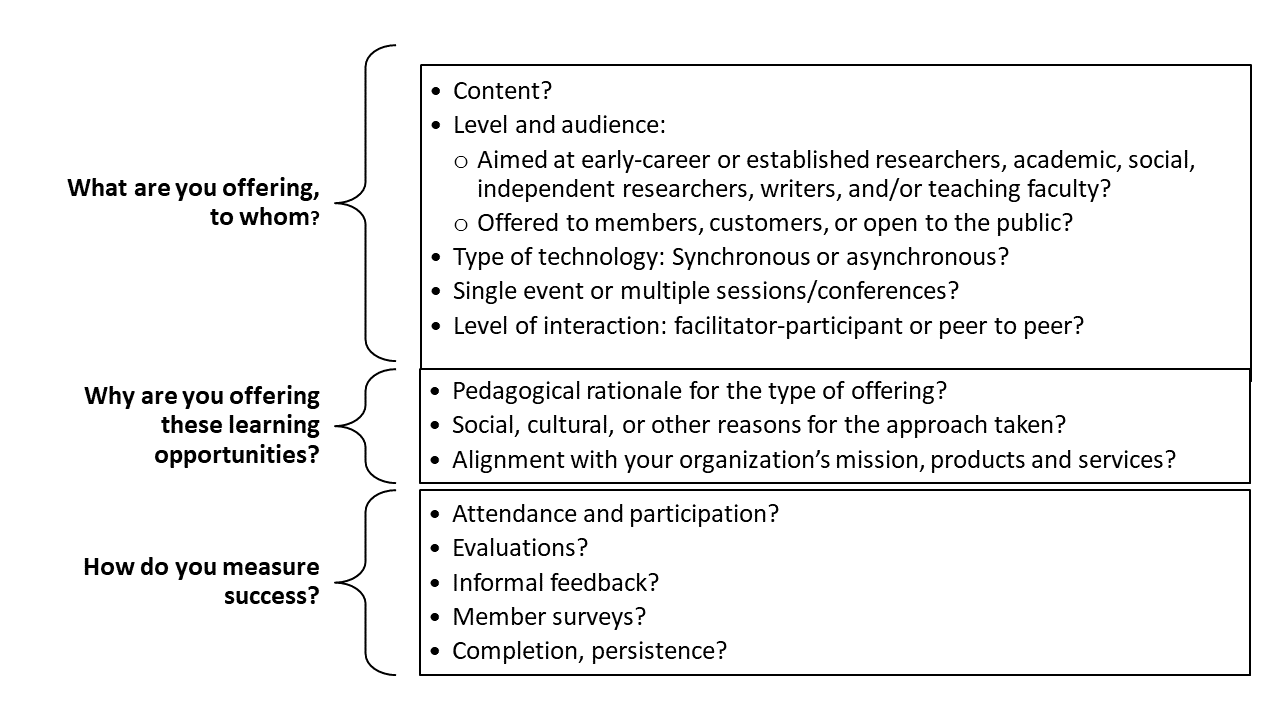
The research team explored these three main questions in the context of each organization’s efforts to provide research methods resources, instruction, and support.
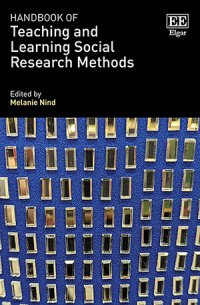
Handbook of Teaching and Learning Social Research Methods
Learn more about teaching and learning research methods!
Learn more about our analysis and findings in a chapter titled “Teaching research methods online: informal or semi-formal professional development” which is included in the Handbook of Teaching and Learning Social Research Methods (2023), edited by Melanie Nind. See the opening chapter by Dr. Nind, Chapter 1: Introduction to the handbook: putting pedagogic models to work in research methods education.
What do you think about Sage Research Methods Community?
Here at Sage Research Methods Community we will continue to offer useful resources to new and experienced researchers. Please complete this short survey to help us learn how we can better meet your needs.
Relevant Sage Research Methods Community Posts
Listen to this interview, and check out Rhys Jones’ latest book: Statistical Literacy: A Beginner's Guide.
This blog is the seventh, and penultimate post, in a follow-on to our 2021 “The future of computational social science is Black” series, about a Summer Institute in Computational Social Science organized by Howard University and Mathematica. It continues to bring the power of computational social science to the issues of systemic racism and inequality in America. This marks the third iteration of the successful SICSS model being hosted by a Historically Black College or University.
This blog post is the sixth of eight in a follow-on to our 2021 “The future of computational social science is Black” series, about a Summer Institute in Computational Social Science organized by Howard University and Mathematica. It continues to bring the power of computational social science to the issues of systemic racism and inequality in America. This marks the third iteration of the successful SICSS model being hosted by a Historically Black College or University.
Latanya Sweeney, scholar of technology science, Daniel Paul Professor of the Practice of Government and Technology at the Harvard Kennedy School and in the Harvard Faculty of Arts and Sciences, and director and founder of the Public Interest Tech Lab, delivered the keynote address for SICSS-Howard/Mathematica 2023.
This blog post is the fifth of eight in a follow-on to our 2021 “The future of computational social science is Black” series, about a Summer Institute in Computational Social Science organized by Howard University and Mathematica. It continues to bring the power of computational social science to the issues of systemic racism and inequality in America. This marks the third iteration of the successful SICSS model being hosted by a Historically Black College or University.
This blog post is the fourth of eight in a follow-on to our 2021 “The future of computational social science is Black” series, about a Summer Institute in Computational Social Science organized by Howard University and Mathematica. It continues to bring the power of computational social science to the issues of systemic racism and inequality in America. This marks the third iteration of the successful SICSS model being hosted by a Historically Black College or University.
This blog post is the third of eight in a follow-on to our 2021 “The future of computational social science is Black” series, about a Summer Institute in Computational Social Science organized by Howard University and Mathematica. It continues to bring the power of computational social science to the issues of systemic racism and inequality in America. This marks the third iteration of the successful SICSS model being hosted by a Historically Black College or University.
This blog post is the second of eight in a follow-on to our 2021 “The future of computational social science is Black” series, about a Summer Institute in Computational Social Science organized by Howard University and Mathematica. It continues to bring the power of computational social science to the issues of systemic racism and inequality in America. This marks the third iteration of the successful SICSS model being hosted by a Historically Black College or University.
This blog post is the first of eight in a follow-on to our “The future of computational social science is Black” series, about a Summer Institute in Computational Social Science organized by Howard University and Mathematica. It continues to bring the power of computational social science to the issues of systemic racism and inequality in America. This marks the third iteration of the successful SICSS model being hosted by a Historically Black College or University.
Julianne Cheek and Elise Øby, co-authors of the book Research Design: Why Thinking About Design Matters, discuss how to make decisions about what qualitative, quantitative, or mixed methods data to collect and how to do so. This post is the third of a three-part series of posts that feature ten author interviews.
Anna CohenMiller helps us drawing on the 4C's of research: Compassion, Community, Care and Collaboration into our research praxis to develop as individuals and researchers.
Doctoral student Sandra Flores discusses her research in Puerto Rico, and what she learned from the experience.
Sage Research Methods Community posts about mentors and mentoring
Julianne Cheek and Elise Øby, co-authors of the book Research Design: Why Thinking About Design Matters, discuss how to make decisions about methodology in this collection of video interviews. This post is the second of a three-part series of posts that feature ten author interviews.
“Learning about networks, therefore, is to learn key intellectual and empirical skills for navigating through complexity – this descriptor that permeates the world of the 21st century.” Learn more in this guest post from Ion Georgiou.
In this guest post Jane Shore and Sarah Singer Quast remind us of the importance of bridging research and practice, and give specific recommendations.
How can you use data science in social science research? Find an interview with the Oxford Internet Institute’s Dr. Bernie Hogan and lots of useful resources in this post.
We need to think about research before we design and conduct it.
Julianne Cheek and Elise Øby, co-authors of the book Research Design: Why Thinking About Design Matters, discuss the first three chapters in these video interviews:
Chapter 1 – Research Design: What You Need to Think About and Why
Chapter 2 – Ethical Issues in Research Design
Chapter 3 – Developing Your Research Questions
The editor of The Sage Handbook of Online Higher Education, Safary Wa-Mbaleka, is joined by contributors in a lively roundtable about teaching and learning online.
This year we need to honor Martin Luther King's legacy with both reflection and action! In this post, find links to lots of original source materials, including documents and recordings.
Look candidly at your unfinished project. Is it a stepping stone, and completion will be allow you to move ahead? Or is it an obstacle that prevents you from moving forward? Find ideas to help you determine whether to revive that piece of writing or let it go.
Have a writing project that is languishing? Find practical tips for keeping it alive!
Methods Film Fest!
We can read what they write, but what do researchers say? What are they thinking about, what are they exploring, what insights do they share about methodologies, methods, and approaches? In 2023 Methodspace produced 32 videos, and you can find them all in this post!
How can we teach and learn research methods and academic writing skills using videos? Find 6 ways to use videos with students or to delve more deeply and build your own skills. Make sure to check out Methodspace videos freely available on YouTube.
Many questions were posed by attendees of the Sage webinar, Create a Research Agenda and Personal Academic Brand, with panelists Dr. Mark Carrigan and Dr. Jessica Sowa. Attendees posed many questions. This post is the first in a series - find responses to your questions and links to related resources.
Jessica Lester and Trena Paulus co-edited a December 2023 special issue for the Sage journal, Qualitative Inquiry, “Qualitative inquiry in the 20/20s: Exploring methodological consequences of digital research workflows.” Read the articles and watch a roundtable with contributors. This is the second of two discussions of the special issue.
Jessica Lester and Trena Paulus co-edited a December 2023 special issue for the Sage journal, Qualitative Inquiry, “Qualitative inquiry in the 20/20s: Exploring methodological consequences of digital research workflows.” Read the articles and watch a roundtable with contributors. This is the first of two discussions of the special issue.
Thinking about research careers and calling: finding the right fit.
Use research cases as the basis for individual or team activities that build skills.
Safary Wa-Mbaleka, Arceli Rosario, and Anna Cohen Miller discussed opportunities and challenges for global researchers and academic writers in this roundtable discussion.


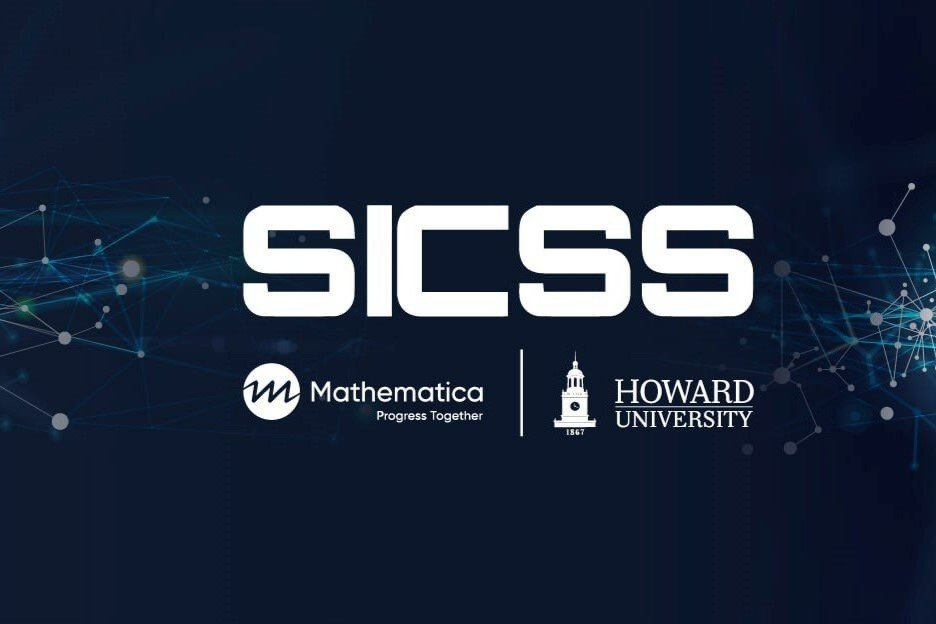






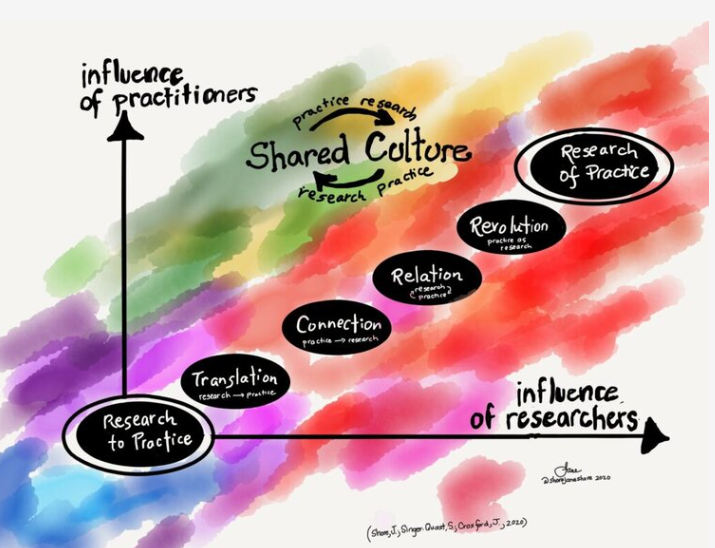




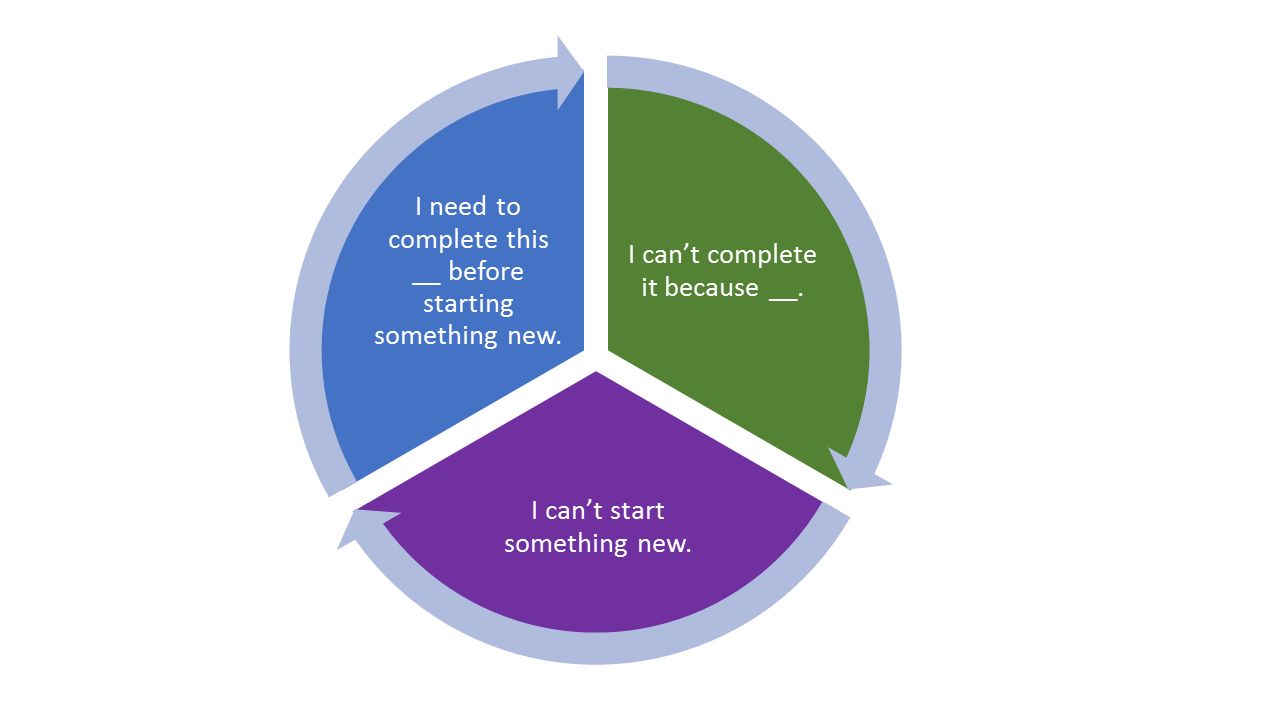









This blog post is the eighth, and final, post in a follow-on to our 2021 “The future of computational social science is Black” series, about a Summer Institute in Computational Social Science organized by Howard University and Mathematica. It continues to bring the power of computational social science to the issues of systemic racism and inequality in America. This marks the third iteration of the successful SICSS model being hosted by a Historically Black College or University.